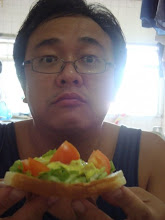WHO BEARS THE COST OF CONCESSIONARY FARES?
11:56 AM February 20, 2009
Letter from Soffy Hariyanti Abdul Rahim
Press Secretary to Minister for Transport
WE REFER to the letter by Mr Chen Khin Wee, “There’s an equal need” (Feb 18), on the need for equal concessions for polytechnic and junior college (JC) students.
We would like to clarify the context of Transport Minister Raymond Lim’s remark in Parliament that “some polytechnic students are better off than others”.
It was in response to suggestions that the Government fund concessions.
The minister had sought to clarify that the general approach of the Government has been to provide targeted assistance to those who need the most help, as had been done for GST credits and CCC ComCare Fund.
This approach ensures that those who are really in need of assistance will receive it and also makes the best use of public funds.
However, what Mr Chen, and many others who have written about this issue, is referring to, is the decision by the public transport operators on which groups of commuters to give concessionary travel to and how much more to provide.
If the operators wish to provide more concessions to a large and diverse group such as polytechnic students, they would have to carefully consider the cost implications as inevitably, this means that some other commuter groups will have to cross-subsidise this concessionary travel.
We thank Mr Chen for the opportunity to clarify.
In addition the Press Secretary's reply attracted two comments which I reproduce here:
Kaibin
Yes I agree we should be to the reasons why students from the same age group needs to be classified in such a manner. I guess the main reason we need to know what is the difference between Poly students and JC students? That got US poly students to be pay more than our JC counterparts ?
Huzie Jane
I believe the above do not answer the queries set by the writer, Mr Chen Khin Wee. Maybe the MOT need to be more transparent why there would be a cross-subsidise.
OK, enough excitement for now. Not my nature to stir up the hornet nest like this.
Collectives
12 years ago

